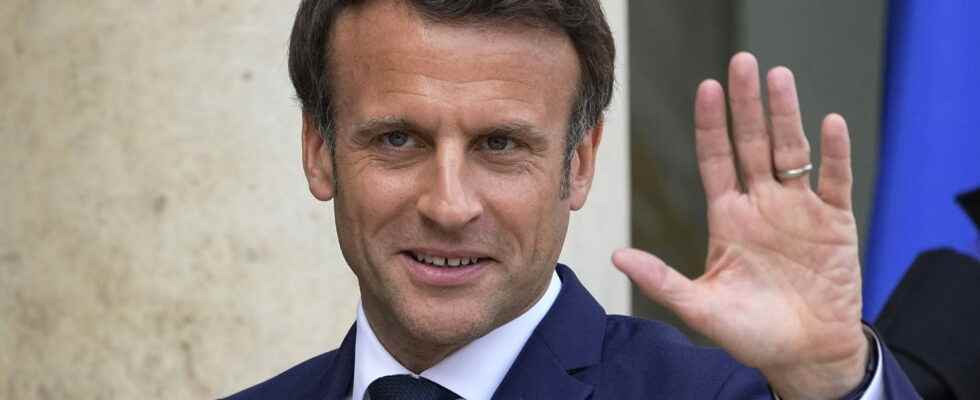MACRON BONUS 2022. The amount of the exceptional purchasing power bonus should triple this year. For who ? How to touch her? Who pays it? We tell you everything.
[Mis à jour le 17 mai 2022 à 08h01] The exceptional purchasing power bonus should well triple this year! Main promise of Emmanuel Macron during the presidential campaign, this bonus free of any taxation was until then capped at 1,000 euros. Good news, it will reach 3,000 euros for all companies wishing to pay it. Employees whose employer has signed an employment agreementprofit-sharing over the last year will even see this bonus reach the amount of 6,000 euros, still net of tax. A way for the executive to reward the effort of employees for two years of crisis and these last months of galloping inflation. The wallets of low salaries and modest households have been strongly impacted.
But then, which employees are affected by the Macron bonus? All employees whose salary is less than 3x the amount of the minimum wage. Last year, 4 million of French people took advantage of it, for an average amount of 506 euros. For the time being, the precise payment dates are not known, the government did not wish to say more. These new amounts could, however, come into force by the summer. Advantageous for the employer because it is exempt from employer contributions, this “PEPA” bonus is also advantageous for the employee. Indeed, it is not subject to social security contributions. Know that Emmanuel Macron has never ruled out the idea of making it compulsory from next year, in 2023. Under what conditions? At what amount? For which companies? Answer in a few weeks.
Since 2019, employees have been able to receive an exceptional bonus, exempt from taxes and social security contributions called the “Macron bonus”. This exceptional purchasing power bonus (is paid by any employer who wishes it to employees, under certain conditions. In particular if the employee in question does not exceed a certain income limit. This tax and social security exemption scheme aims to encourage employers to pay bonuses to their employees in order to enhance their purchasing power. It is not a state bonus, but a company bonus which remains optional and voluntary.
To be exempt from employee contributions, the Macron bonus cannot exceed the amount of €1,000. Companies that have a profit-sharing agreement can pay the Macron bonus up to €2,000. This amount, doubled, is also valid for companies with fewer than 50 employees, and second-line workers (if revaluation measures are taken). This bonus could now triple in the event of re-election of the LREM candidate on April 24, going from 1,000 euros to 3,000 euros. And up to 6,000 euros without charges or taxes for companies benefiting from a profit-sharing agreement.
The Macron bonus is paid within a period provided for by law. In this case, between the June 1, 2021 and the March 31, 2022. Whether you are a civil servant, an employee, or an industrialist, you have the possibility of benefiting from it.
The exceptional purchasing power bonus is exempt from income tax and from any social security contributions or contributions. But then, who is eligible for the Macron bonus? Employees earning less than 3 times the Smic (over the 12 months preceding the payment). This Macron bonus does not replace any element of remuneration.
The amount of the Macron bonus exempt from contributions is capped at €1,000. However, this amount may double and reach €2,000 in the following cases:
- The company has signed a profit-sharing agreement
- The company has less than 50 employees
- Second-line workers (if upgrading measures are taken)
Already extended in 2021, the premium PEPA is renewed for the year 2022. Note that the employer is not obliged to pay the Macron bonus. If he wishes to pay it, he has the option of doing so atall of its employeesor only to employees whose remuneration is less than 3 times the Smic.
In 2022, the Macron bonus benefits both employees and apprentices, as well as temporary workers and public officials. The employer can completely modulate the amount of the payment of the PEPA bonus according to the beneficiary according to certain criteria such as the employee’s remuneration, the employee’s classification level, his working conditions during the Covid crisis, or still his working time over a year.
